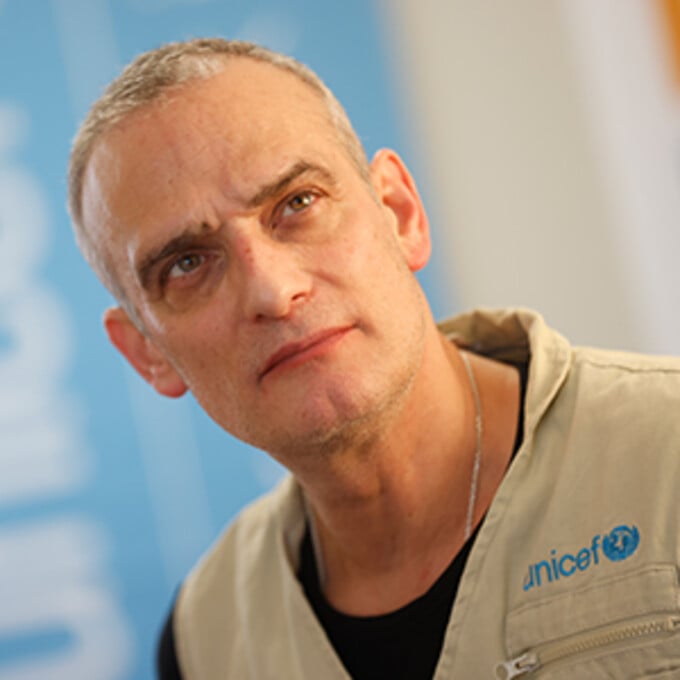On February 6, 2023 devastating earthquakes hit the border region between Turkey and Syria. More than 50,000 lives were lost. The massive destruction left the affected population in urgent need of humanitarian aid – including more than ten million children. UNICEF is still working in the earthquake region and providing long-term aid.
The situation
A number of strong tremors in succession on the Syria-Turkey border destroyed important infrastructure such as schools and hospitals in the night of February 6, 2023. Many homes were also razed to the ground. Hundreds of thousands of people are affected by the massive destruction. Children and families lack food, clean drinking water, medical supplies, psychosocial care and accommodation. Countless children still remain in emergency accommodation in the earthquake-hit regions.

“What I saw there left me deeply moved. UNICEF is providing lifesaving aid to children and young people who lost everything in the earthquake on February 6, 2023.”
The situation is particularly dramatic in Syria. The majority of the population had already lost everything after more than twelve years of civil war, mass displacement, an infrastructure in ruins and the escalating economic crisis. The devastating earthquake a year ago led to a further deterioration in the situation. In particular, the traumatic experiences and a lack of access to basic services present a major risk to millions of Syrian children. More than 15.3 million people – almost half of them children – are in urgent need of help.
How your donation helps
UNICEF has been on the ground in northern Syria and other parts of the country for many years. A year after the disaster, UNICEF is still working in the provinces damaged by the earthquake to also support the children and families affected by the longer-term consequences of the earthquake. The focus at all times is on psychosocial support and the children’s welfare. UNICEF, together with its partner organizations, offers a variety of activities and programs that allow children to learn partly through play, express their emotions and process their traumatic experiences. In addition, the deployment of inpatient and mobile medical teams provides safe and sustainable access to health services: caring for malnourished children also has priority here.
In Turkey, UNICEF continues to do everything in its power to make sure that the affected children and families receive the support that they urgently need. UNICEF’s activities focus on reviewing the key water supply points and services as well as health and nutrition requirements. The focus here includes ensuring access to routine vaccinations by delivering vaccines to the Ministry of Health. UNICEF also distributes critical emergency supplies to families, such as blankets, winter clothing and hygiene kits. Child protection also has a high priority for UNICEF in Turkey. First and foremost, this includes psychosocial support for traumatized children by means of a variety of programs, in both emergency accommodation and child friendly spaces.





